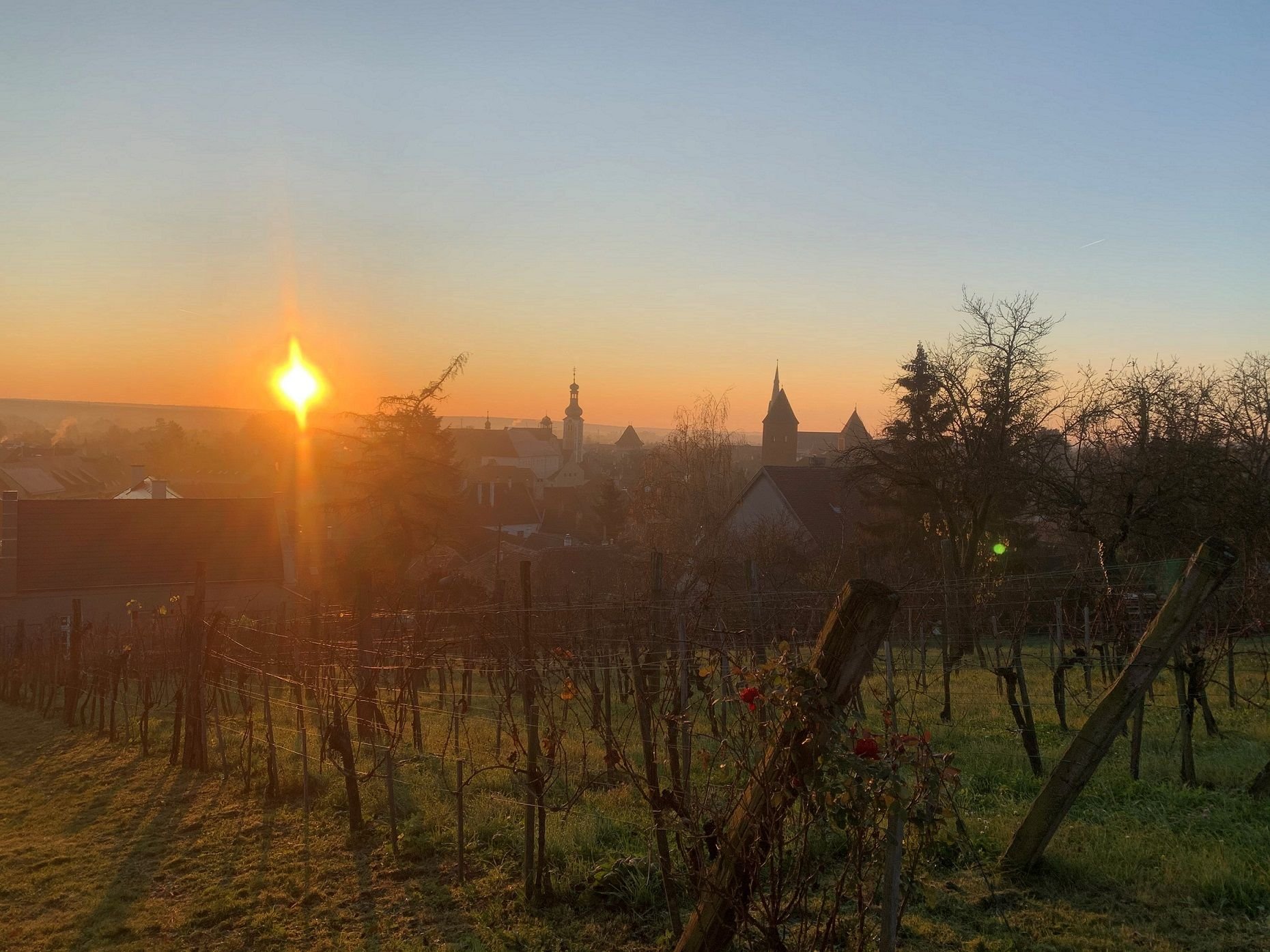Hungary > Transdanubia > Sine Compromisso
organic, biodynamic, low-SO2, vegan
Sine Compromisso; Koszeg, Hungary
transdanubia & sopron
A quick glance at a map of Hungary shows that the country is bisected vertically by the Danube River, flowing south from the triple border of Hungary, Slovakia and Czechia due south to the triple border of Hungary, Croatia and Serbia. The area to the west of the Danube was known to the Romans as Transdanubia, and the northwesternmost section of Transdanubia is today known as Sopron.
Guarding the gateway to Austria is the town and castle of Koszeg, where in 1532 a force of a mere 700 Hungarian peasant troops held an Ottoman army of over 100,000 at bay for 3 weeks, thwarting their march on Vienna and quite possibly saving Western Christendom from Ottoman domination.
Koszeg
Sopron and adjacent Koszeg, in Hungary’s far northwest adjacent to the Austrian border, is the home of Kekfrankos. Burgenland, just across in Austria, is also famed for its Blaufrankisch, the Germanic version of this superb grape’s name.
Known as the “King’s Wines” since the middle ages, the history of the vine here runs deep. The district has produced wine for centuries, although many vineyards were abandoned due to phylloxera in the 19th and 20th centuries.
“[W]e need to experiment and learn from mistakes. There is a lot of risk in the path we have chosen, which is why it requires a good dose of madness.”
Sine Compromisso
Ervin Stampf & Tamas Kaibinger
Sine Compromissó was created by Dr. Tamas Kaibinger, a lawyer by trade and Ervin Stampf one of a family of noted architects; both local wine-lovers searching in quest of the most perfect expression of Kékfrankos expression of the terroir of their native Köszeg, Sopron. As it turns out the two are distant cousins, sharing a set of great-grandparents.
Sine Compromissó vineyards cover just 6 acres and produce ~4,000 bottles per year. The wines are extremely minimalist in style, made entirely by hand and gravity, utilizing organic and biodynamic principles throughout.
Most of the agricultural land is located above the town: 0.9 acres on Sultan Hill, 2.5 acres on Kálvária Hill, 1.8 acres in Csúcsos-dűlő, and 1.2 acres in Ördög-árk. Where Tamas and Ervin have replanted, they avoided the more common Pécs Kékfrankos clone with large berries and tannin-rich skins, in favor of an Austrian clone with smaller berries, brighter acidity and more restrained tannins.
Tamas and Ervin respect the past and feel a sense of responsibility for the future, which is why the two decided on biodynamic cultivation. The wines are made gently: the clusters are picked whole, and only fully intact berries are processed. The fermentation takes place spontaneously in a vat, and there is no pumping, just a long cool maceration using only natural/indigenous yeasts, with fermentation taking place exclusively in older oak barrels and/or stainless. Little to no sulfur is used, and the wines are bottled unfined and unfiltered.
These are, simply put, some of the finest expressions of Kekfrankos (Blaufrankisch, Lemberger…) ever put into bottle. In seriousness and complexity, and for the simple joy of exploration, these wines rival serious red Burgundies.
The Calvary Church in Koszeg, nestled in the vines
The Wines
Birktobor: An experimental wine: high-altitude grapes fermented in four parts, then meticulously blended back together to form a harmony. Annual production around 80 cases.
Fiatal Kálvária: Planted in 2016 (Fiatal = “young”). Sub-alpine micro-climate, planted 900-1350 ft elevation on rocky mountainside vineyards near the Calvary church on the lower slopes of the Alps with a southern exposure. No added sulfites. Annual production about 30-35 cases.
Oreg Kálvária: 30-year old vines (Oreg = “old”) planted 300-450 900-1350 ft elevation on rocky mountainside vineyards near the Calvary church on the lower slopes of the Alps with a southern exposure. No added sulfites. Annual production one barrel (25 cases).
The individual vineyard sites
Csúcsi: From one of the highest elevation (1400ft ) and coldest vineyards in Hungary. One-week maceration, natural fermentation, then aged in a 500L Stockinger oak barrel for one year. Annual production 500L (55 cases).
Hipster: A 50/50 blend of Ördög and Csúcsi, both planted in 2016. 30% whole cluster fermented. Production varies from 50 to 100 cases.
Ördög: From a mountain vineyard surrounded by forest, where the kékfrankos shows its signature cassis aromatics. Annual production 25 cases.
Sultan: From 2016 plantings on Sultanhegy. Ripe complex and harmonious. One of their finest, most deeply aromatic cuvees. Annual production 25 cases.
Tamas, explaining biodynamic principles








